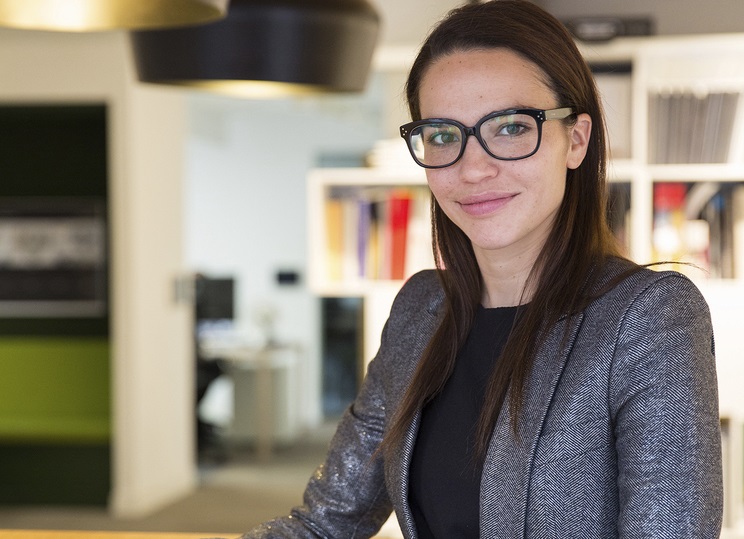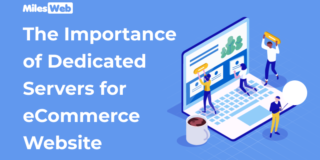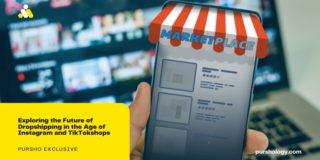Natasha Bonugli is Regional Principal of Design EMEA for Unispace – a company that specialises in business interior design. We spoke with Bonugli about her day-to-day working life, and how it has been impacted by Covid-19.
Please describe your job: What do you do?
I am the Regional Principal of Design EMEA for Unispace. We are a global design firm specialising in workplace interiors with integrated project delivery capabilities. I am part of the Executive Leadership team in Europe, focusing on strategic planning and business growth across the region.
As part of my role, I provide creative leadership and direction to 54 designers across 14 studios in Europe. I split my time between working on global design initiatives and driving thought leadership across the business; pushing the boundaries within design and inciting the team to create great products which ultimately elevates our brand position in the market.
How has your typical day been impacted in the short term by the pandemic?
The biggest change for me has been the fact that I haven’t travelled in months. I used to travel across Europe or internationally almost every week, so this has had a major impact on my working and home life. On the positive side, it has been a great opportunity to spend more time with my two year-old son, Hugo – although on the downside, having Peppa Pig on in the background while on client calls and presentations has been something of a challenge! We live in a mostly open-plan loft in Shoreditch, so there aren’t that many places for me to hide when I have important video calls throughout the day.
The other major impact on my working life has been adapting our creative process to accommodate remote working. Collaboration and ideation as we know them have without a doubt been disrupted, and I am missing pin-up space and brainstorming with my team face-to-face to develop new concepts. Creative brainstorming has been difficult virtually and even with advanced technology and digital tools, it will never replace the power of a face-to-face.
Also, while trust and autonomy amongst the team have come automatically, management styles have had to change. I am doing more daily check-ins with the global team and with clients to show project progress, and this means that my day is broken up into chunks of work based on time zone differences: Europe in the morning, the US in afternoon, and global calls with the APAC team in the evenings.
Virtual pitches and presentations have also posed challenges, as it is hard to read a virtual room for reactions when you are sharing your screen and often can’t see the other participants.
What are your favourite tools and techniques to help you get your work done at the moment?
Unispace is a multidisciplinary firm so collaboration is in our DNA. We are used to working across disciplines and teams to deliver projects. But our work styles have had to change considerably to accommodate virtual working. I am still old-school in terms of the creative process; I like to use trace paper and sketch over at early stages of design and concept development, so I bought a small MFD at home so that I can print and scan drawings if required.
We are using a combination of Microsoft Teams, Skype, Zoom, and Webex to collaborate both internally and with our clients globally, and we use Microsoft One Drive for sharing large files and content without having to email them. Microsoft One Note has been useful for taking notes on the spot during calls and then emailing the pages over to colleagues and Adobe Acrobat has been invaluable in marking-up drawings and sharing comments on documents.
Which companies have impressed you during the pandemic?
This experience has been a wake-up call to the world with regards to the environment and a realisation that, in this fast-moving world, there is very little we need in terms of material things. Two companies that have impressed me with their campaigns to highlight this concept are Vogue’s Reset campaign and its Landscape cover series, which created an ode to resetting our relationship with the environment, and Sheep included – a carbon-negative knitwear label that aims to set a new standard of sustainability.
Closer to home, I’ve been so inspired by how my local community took action to support each other and adapt their offers to respond to what we needed during lockdown such as pubs and bars opening local grocery stores and delivering essential items.
What changes are you making to help your brand connect with how people are feeling and experiencing the pandemic?
We believe that the pandemic will change the way we work forever and our priority is supporting our clients as they adapt their workspaces to support the return to work.
We have carried out a number of initiatives to identify the challenges our clients are facing and how they intend to return to a ‘new normal’ workplace. These include a global survey of our clients and taking our Workplace Events programme, ‘Hive’, online. In addition, we have rolled out a number of key research-driven webinars over the past few months to share our insights and evolving concepts for a post-Covid workplace.
What trends have you seen in the last few weeks in your sector?
Probably the most misleading trend we’ve seen is the claim that the “office is dead”. While employees have worked from home over the last four months without impacting productivity levels, this does not mean the office has been made redundant. On the contrary, the pandemic has revealed just how valuable the workplace is for all members of staff and for the culture and ethos of a company.
The office may not necessarily be the best place for work that requires concentration but it is irreplaceable for ideation, collaboration and sharing ideas and is particularly important for junior staff who learn, in large part, through osmosis from their senior peers.
Some companies have made ‘knee-jerk’ decisions including office space reduction, which we feel they may come to regret. To a degree, businesses will be able to save on office space, but it’s not as simple as that. The office of the future will have very different requirements and none of us can yet know fully understand what these will be.
However, without a doubt our workspaces will need to be reimagined: they will have a different purpose moving forward based on an organisation’s needs and sector bias. As designers, it is an incredibly exciting challenge to help enhance the workplace experience for people as well as an organisation’s brand and culture.
What advice would you give a marketer right now?
My advice would be first of all to never stop exploring – use the world for inspiration and constantly be curious. Other sectors can be a great source of inspiration, and it is surprising how much overlapping there is in our world. Secondly, be bold, don’t follow trends for fear of ‘not keeping up’ with competitors, trust your instinct and go with what you genuinely believe will be a worthwhile or successful strategy.
What does long term planning and strategy look like now at your brand?
Covid has ushered in a massive change around how we imagine work; it has accelerated the flexibility and WFH culture many employees were crying out for. We aim to empower our people to choose how and where they work in the future – flexibility and choice are crucial for our long-term planning.
Company culture is going to be a strong focus for us. It’s impossible to continue to develop a culture virtually, so that is why it important to reimagine the purpose of our workplaces moving forward and what are going to be keys aspects that pull people back together.
The office is still very necessary, but it must be reimagined to serve a different, new purpose – one that is centred around people and their unique needs. In addition, the office will also emerge as a true representation and manifestation of the company’s brand. We are focusing on investing in better technology, better environments and in turn better experiences for our people.





